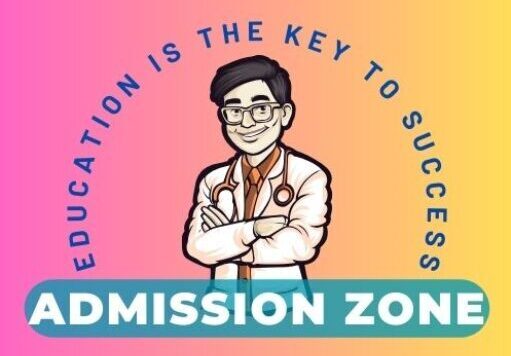You’ve spent months preparing, gone through countless practice tests, and finally faced one of the most important exams of your life—NEET. Whether it went smoothly or not, the fact that you completed the exam is a huge achievement. Now, you probably want to know about, “what to do after NEET exam?”
This period after NEET can feel uncertain, but it’s also the time where smart planning can really make a difference. From taking a well-deserved break to understanding counseling and exploring alternatives—this guide will walk you through every important step in a relaxed, supportive tone.
NEET Overview
The National Eligibility cum Entrance Test (NEET) is India’s mandatory exam for aspiring doctors and dentists. Conducted by the National Testing Agency (NTA), it opens doors to MBBS and BDS courses across government and private medical colleges. It’s an important step for millions of students aiming for a medical career in medicine.
Important Things to Do After NEET
After taking the NEET exam eagerly await your results and official answer key. Once they’re out, download your scorecard and analyze your performance. Check previous years’ cutoffs and research about colleges and courses that best fit with your score. The next step is participating in the counseling process, both All India Quota and State Quota, ensuring all your documents are ready for verification. Consider alternative medical fields like BDS or AYUSH courses if you are not able to get into MBBS courses. If required, a strategic gap year for re-preparation can also be beneficial.
Job Scope After NEET
NEET opens lots of medical career options beyond just becoming a doctor. You can take admission in Dentistry (BDS), Ayurvedic medicine (BAMS), Homeopathy (BHMS), or even allied health sciences like nursing and physiotherapy, all offering you a platform for entering into healthcare.
Relax and Take a Break
Before anything else—breathe. NEET preparation is mentally and emotionally stressful. You’ve been under pressure for months, and now that the exam is done, it’s okay to pause. Give yourself permission to rest.
Take a few days off to do the things you enjoy. Go out with friends, binge-watch that series you’ve been putting off, or simply sleep in without feeling guilty. This small break will help you recharge and come back with a clearer, calmer mindset when it’s time to make important decisions.
Remember: self-care isn’t a luxury—it’s a necessity after an intense journey like NEET.
Specializations after MBBS
After completing MBBS, doctors can specialize through MD (Doctor of Medicine) or MS (Master of Surgery) degrees. This course lets them focus on specific areas like Cardiology (heart), Pediatrics (children), Dermatology (skin), Orthopedics (bones), or General Surgery, for more focused and rewarding careers.
10 Best Courses After NEET
10 Best Courses After NEET
| S.No. | Course Name |
|---|---|
| 1 | MBBS (Bachelor of Medicine, Bachelor of Surgery) |
| 2 | BDS (Bachelor of Dental Surgery) |
| 3 | BAMS (Bachelor of Ayurvedic Medicine and Surgery) |
| 4 | BHMS (Bachelor of Homeopathic Medicine and Surgery) |
| 5 | BPT (Bachelor of Physiotherapy) |
| 6 | B.Sc Nursing |
| 7 | BVSc & AH (Bachelor of Veterinary Science & Animal Husbandry) |
| 8 | BUMS (Bachelor of Unani Medicine and Surgery) |
| 9 | BMLT (Bachelor of Medical Laboratory Technology) |
| 10 | B.Sc Radiology and Imaging Technology |
Top Career Options After NEET
After your NEET results, a world of healthcare opportunities opens up!
- MBBS: The first choice to become a medical doctor, with diverse specializations like cardiology or surgery later on.
- BDS: Become a dentist, focusing on oral health and performing procedures.
- BAMS & BHMS: Explore traditional Indian medicine systems like Ayurveda or Homeopathy.
- B.Sc Nursing: Play an important role in patient care, offering job security.
- BPT (Physiotherapy): Help people recover from injuries and improve movement.
- BVSc & AH: For animal lovers, become a veterinarian.
- B.Pharm: Work in pharmaceuticals, developing and dispensing medicines.
- Paramedical Courses: Various roles like medical lab technology, radiology, or operation theatre technology.
- Nutrition & Dietetics: Guide people on healthy eating habits.
- Biotechnology: A research focused field exploring biological systems for medical advancements.
Stay Calm and Wait for the Official Answer Key
Once you’ve had a breather, it’s time to refocus. The next important step is to wait for the official NEET answer key and your OMR sheet, which the NTA usually releases within a couple of weeks.
Avoid panicking over unofficial keys that circulate on social media—they often have errors and can cause unnecessary stress. When the official key is released, use it to estimate your score as accurately as possible.
Analyze Your Expected Rank
After calculating your approximate score, the next logical step is to predict your rank. Several reliable NEET rank predictor tools are available online that can give you a fairly accurate estimate of your All India Rank.
Knowing your expected rank will help you gauge your chances of admission in top medical colleges and prepare for counseling more confidently. It’s a key part of understanding your realistic options and setting your expectations accordingly.
Research and Explore Future Options
This is where you widen your perspective. NEET is just a part of your medical journey, not the whole picture. Whether your score is high or lower than expected, it’s time to explore all your options.
Start researching:
- Government and private MBBS colleges
- Medical courses beyond MBBS like BDS, BAMS, BHMS, and B.V.Sc
- Opportunities to study MBBS abroad in countries like Russia,Uzbekistan, or the Philippines
- Allied health sciences, biotechnology, and paramedical fields
- Dropping a year to reattempt NEET (only if you are mentally and emotionally ready)
You’d be surprised how many meaningful careers exist in the medical and healthcare space—even beyond MBBS.
NEET 2025 application process for various seats
For NEET 2025, apply online via NTA. MCC handles 15% of All India Quota and Deemed/Central University seats. State authorities manage 85% State Quota and private college admissions. Be ready with all documents to get admission.
Check NEET Cutoffs (Previous and Expected)
Another key step in understanding what to do after NEET exam is checking cutoff scores. NEET cutoffs change every year based on factors like difficulty level of exam, number of candidates, and availability of seats.
Start by checking the previous year’s cutoff scores for both AIQ and state quota seats in government and private colleges. Also, look into category-wise cutoffs (General, OBC, SC/ST, EWS) to understand your chances better. This will help you shortlist colleges during counseling more effectively.
Explore the NEET Counseling Process
Once results are announced, NEET counseling begins. This is where you actually get to apply for medical colleges based on your rank.
There are two types of counseling:
- All India Quota (AIQ) – Conducted by MCC, provides seats in central universities and 15% of government college seats in India.
- State Quota Counseling – Managed by individual states for candidates with domicile status.
The counseling process includes registration, choice filling, document verification, and multiple rounds of counseling. Be sure to keep a close watch on the official websites (MCC and your state’s DME) so you don’t miss important deadlines.
Plan Next Steps
By now, you should have a decent idea of where you stand. This is the time you have to plan your next steps strategically.
Make a list of your preferred colleges based on your rank and category. Organize your documents (we’ll get to that next), track counseling dates, and stay ready for quick decisions.
This is also when you should think ahead—prepare a backup plan and discuss finances if private or abroad options are on the table.
Planning early helps you avoid panic during the hectic counseling phase.
Use a NEET College Predictor
A college predictor tool is a game-changer at this point. It gives you an idea of which colleges you can get into based on your score, rank, and category.
This allows you to:
- Prioritize realistic options
- Avoid wasting time on colleges you can’t get into
- Prepare for choice filling during counseling
Some predictors even give you insights on college fees, course reviews, and hostel facilities—super helpful when you’re making big decisions.
Prepare Your Documents
Don’t wait till the last minute. Start preparing all the documents needed for NEET counseling now. These typically include:
- NEET Admit Card and Scorecard
- 10th and 12th Mark Sheets
- Birth Certificate
- Identity Proof (Aadhaar, PAN, Passport)
- Domicile Certificate
- Category Certificate (if applicable)
- Passport-size Photos
- Provisional or Transfer Certificate from your school
Check everything and keep both hard and soft copies ready. Being prepared here means less stress when counseling starts.
Guidance and Support
Choosing a medical college or deciding whether to drop a year isn’t easy—so don’t go through it alone.
Reach out to:
- Mentors and school teachers
- Seniors who’ve been through NEET
- Career counselors
- Parents and guardians
- Online NEET forums and communities
Sometimes just talking it out can bring a lot of clarity and reassurance.
Backup Plans if Score Isn’t Enough for MBBS
Not getting into MBBS doesn’t mean the end of your dream. Thousands of students every year go on to build meaningful careers in healthcare through alternate paths.
Some great options include:
- BDS (Dental) – Especially if you love precision and patient interaction
- AYUSH courses – Such as BAMS (Ayurveda), BHMS (Homeopathy), and BUMS (Unani)
- Veterinary Science, Nursing, or Allied Health Sciences
- MBBS Abroad – In countries where eligibility is based on NEET qualification, not rank
- Taking a gap year – Only if you are mentally ready and determined to improve
Make sure your choice reflects what you genuinely want—not just what looks good to others.
Stay Motivated and Positive
This journey can feel overwhelming at times. But here’s something to remember: You’ve already come so far.
NEET is just a gateway—it’s not a judgment of your worth or future. Whether you’re getting into your dream college or still figuring things out, staying positive, focused, and resilient is what really counts.
Stay connected with peers who lift you up, take care of your physical and mental health, and keep reminding yourself why you started this journey in the first place.

FAQs of What to do after NEET Exam
You won’t be eligible for MBBS/BDS but can explore other health-related or science courses, or prepare again for next year.
Yes, through private colleges, deemed universities, or NRI/management quota seats, depending on your budget and availability.
Yes, if you’re eligible under domicile rules, you can apply in multiple state counseling processes.
There are several: initial rounds followed by mop-up and stray vacancy rounds, depending on the seat availability.
Connect with Us for What to do after NEET Exam
Start your medical educational journey with the Admission Zone! Contact us today on 9205488482/ 7599994403 or WhatsApp us to explore a world of educational possibilities in the state and secure your admission to a brighter future.
Conclusion
If you’re still unsure what to do after NEET exam, here’s the short version: relax, reflect, research, and respond with clarity.
Every step you take now—from checking your answer key to planning your backups—is part of the journey toward your medical dream. Whether you’re wearing a stethoscope next year or exploring alternate paths, your commitment, patience, and smart decision-making will lead the way.

